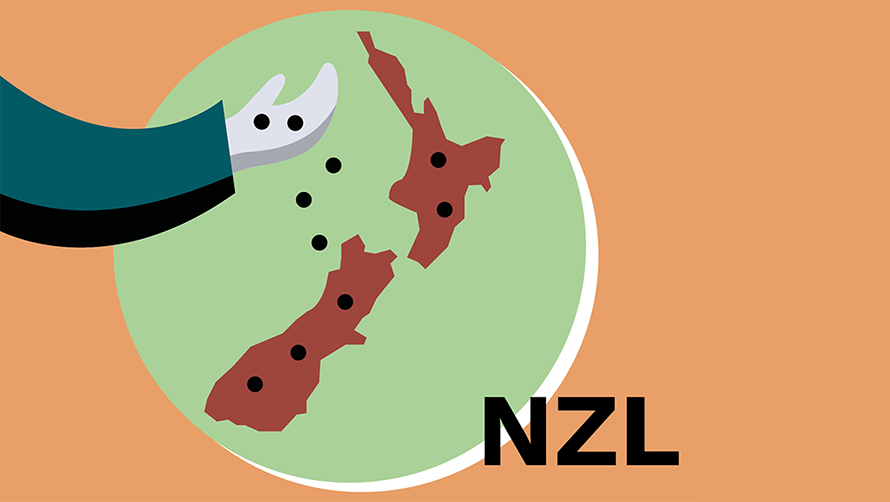Guest Contributions
This website offers space to fellow researchers, who discuss emerging perspectives on the making and unmaking of (agrarian) institutional landscapes worldwide. If you are interested in contributing, please contact me directly!
In this space, a particular focus will be put on emerging perspectives in a fast-changing field, where sometimes assumptions and statements made in the past hold no longer true in the present; where just another crisis or government regulation has crashed the dreams of investors; where suddenly AG tech and not farmland is heralded as the most promising new “asset class”, or where methodological advances now suddenly allow us to account in more granular ways about trends and investment footprints in the ‘AG space’. It is also a chance for scholars to revisit their own (past) research in light of recent advances in debates and research findings. We will offer fellow researchers exposure on the platform, as well as graphic design services in case you would like to contribute figures or photos. In this space, guest contributions are published.
Submissions are ordered chronologically. They can also be found in the “Emerging perspectives” section in “Follow the Money“, as well as in “Frictions“, in “Aotearoa New Zealand” and in “Tanzania“.
Search Contributions

June 2024
#17: Methods to Research Land Ownership and Advance Land Justice: The Appalachian Land Study
Reflecting on their work on land ownership in Central Appalachia, Lindsay Shade and Levi van Sant demonstrate the importance of building grassroots knowledge and solidarity through collaborative action research.
Read more
May 2024
#16: Finance and the Growth of Corporate Food in Egypt
North African and Middle Eastern actors and spaces have received very little coverage in the engagement with the finance-farming-nexus. Marion Dixon’s book The Frontier of Corporate Food in Egypt is an important correction to this geographical bias, offering a deep account of how the corporate food regime manifests itself in one of Africa’s largest economies.
Read more
March 2024
#15: Land Assembly, Financialization and Agriculture in Canada’s North
Building on her long-lasting interest in settler-colonial land transformations in Canada, Sarah Rotz focuses on a hitherto neglected topic: The expansion of large-scale agriculture in the country’s north.
Read more
February 2024
#14: Land Question 2.0 – First Cracks in the 20th Century Property Consensus
Offering an analysis that bridges the urban and the rural, Alexander Dobeson and Sebastian Kohl attend to recent cracks in the property consensus that have emerged over the past years due to the widespread and conflict-laden assetization of both urban and rural land in the Global North and South.
Read more
January 2024
#13: The Work of Money in Assembling the Aotearoa New Zealand Dairy Industry
Russell Prince, Matt Henry, Michael Mouat and Carolyn Morris take the Fonterra’s pricing practices as a starting point to engage with the question of how we can deal with the social and political character of money and its derivative forms.
Read more
November 2023
#12: Local Actors and the Work of Investment Mediation in Australian Agriculture
Zannie Langford opens our new theme on “intermediaries” – a neglected class in research on the assetization of farmland and agriculture.
Read more
October 2023
#11: The Promise and Pitfalls of Using Land Titles Data to Track Agricultural Land Ownership – An Australian Perspective
Bill Pritchard and Cathy Sherry on the promise and pitfalls of using land titles data to track agricultural land ownership in Australia.
Read more
June 2023
#10: How Farmland was Financialized…for Groundwater
Anthropologist Julia Sizek’s account underlines the entangled nature of land and water speculation, with the Californian state playing a central role in this.
Read more
May 2023
#9: Sorting out Ownership Questions – Digging into Financialization through Land Titles Data
André Magnan and Annette Aurélie Desmarais show why obtaining and using land titles to study of changing farmland ownership patterns on the Canadian prairies hasn’t been easy.
Read more
April 2023
#8: New Glossary Entry: “Money”
Anitra Nelson engages with the social character of money, an “object” largely unquestioned in investment discourses.
Read more
March 2023
#7: Agri-finance and the State – Changing Corporate Strategies and the Financialization of Agriculture: Revisiting the Case of Argentina
Carla Gras and Andrea P. Sosa Varrotti revisit their work on agri-investments in Latin America.
Read more
March 2023
#6: New Glossary Entry: “Patient Capital”
Partly building on his work in Tanzania, Gideon Tups helps us make sense of the keyword “patient capital”, which has become a buzzword in development finance.
Read more
February 2023
#5: Sorting out Ownership Questions – The Ultimately Unclear Beneficiaries of Power in Industrial Agriculture
Sociologists Loka Ashwood and Phil Howard engage with the problem of tracing ownership relations along the agri-investment chain.
Read more
January 2023
#4: Follow the Money – Catching up with Time
‘Follow the losses’: Tijo Salverda discusses the temporal dimension of agri-investments for a case in Zambia.
Read more
December 2022
# 3: Follow the Money – The Case of Brazilian Agri-investments
Samuel Frederico discusses the challenge of ‘following the money’ in the case of Brazilian agri-investments.
Read more
November 2022
#2: First guest posts on Brazil, US, Zambia and Argentina in the making
We are happy to announce that several colleagues from around the world have agreed to contribute to our guest writers’ sections.
Read more
August 2022
#1: Agri-investment scholars of the world unite!
We are online! Check out our website and guest writer section.
Read more